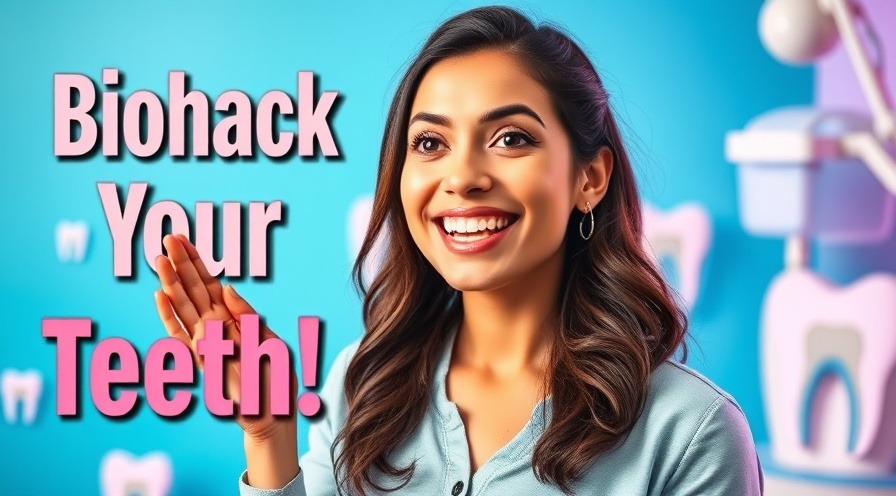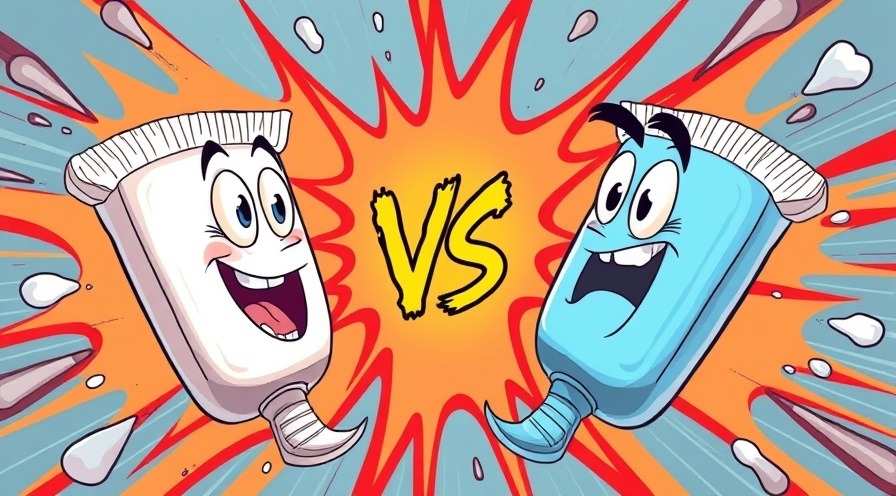
Unlocking the Secrets to Biohacking Your Dental Health
When it comes to oral health, many of us are constantly searching for effective and cost-efficient solutions. The recent video titled 3 Ways to Biohack Your Teeth provides some intriguing insights into simple yet powerful steps we can take to improve our mouth health.
Why Saliva Is Your Best Ally
Let’s start with the star of the show: your saliva. Often overlooked, this natural substance is loaded with minerals essential for tooth enamel restoration. The trick lies in giving your saliva time to work its magic. Instead of incessantly sipping on water or snacking throughout the day, allow your mouth’s natural resources to build your teeth back up. Taking breaks from eating and drinking allows saliva to perform its restorative function, optimizing the way your body heals.
The Power of Food: What to Eat for Healthy Teeth
Next up, we delve into the foods that can help maintain a satisfied smile. Incorporate items like leafy greens, celery, and beets into your meals — not only do they promote digestion, but they also support your mouth’s health. Dairy products like cheese and milk are particularly beneficial because they promote alkalinity and help neutralize acids in your mouth. But if there’s a superhero of mouth health, it would undoubtedly be xylitol. This sugar alcohol not only stimulates saliva production but also kicks plaque to the curb. You don’t need to overindulge; a few crystals of xylitol can work wonders, keeping your mouth healthy without breaking the bank.
Understanding Your Mouth's Circadian Rhythm
One of the more surprising aspects of mouth health is the 24-hour rhythm our mouths follow. Understanding this can help you make intentional choices regarding your oral hygiene routines. Did you know that saliva production fluctuates throughout the day? It peaks around noon but diminishes at night. This means the nighttime routine should highlight thorough cleaning before sleep. If you can't access a toothbrush, keep xylitol at your bedside for a quick fix. Cultivating mindfulness around when and how you care for your teeth can lead to better long-term results.
Connecting Whole-Body Health to Oral Wellness
It’s vital to recognize that our overall health is intricately linked with our dental well-being. The state of our gut can affect how minerals are absorbed into our system—important vitamins and minerals make their way into our saliva, and thus directly influence our teeth. So a balanced diet rich in nutrients isn't just good for your body—it’s essential for your mouth! Prioritizing what you eat influences your dental hygiene in tangible ways.
Getting Moving for Better Dental Health
Lastly, a simple yet effective way to enhance your mouth health is through physical activity. Exercise boosts blood circulation, which directly impacts saliva flow. Even gentle movements or yoga can stimulate your salivary glands. This is particularly pertinent for elderly individuals or those unable to engage in vigorous exercise. The aim is to keep the body active, which in turn supports the health of your teeth.
In summary, biohacking your teeth doesn't require expensive products or extensive regimens. By leveraging the power of saliva, incorporating mouth-friendly foods, aligning your habits with your body’s rhythms, and maintaining an active lifestyle, you can enjoy a healthier mouth without breaking the bank. So, why not take a moment today to reflect on your oral hygiene practices? Maybe it’s time to tweak some habits for a brighter smile!
Disclaimer: The information provided on this website is for general informational purposes only and should not be considered medical advice, diagnosis, or treatment. Always consult a qualified healthcare professional before making any decisions or taking actions related to your health, including but not limited to medical conditions, treatments, diets, supplements, or exercise programs. The content on this site is not intended to replace professional medical guidance. The website and its authors are not responsible for any actions taken based on the information provided. Ask your doctor or licensed medical professional first.
 Add Row
Add Row  Add
Add 




 Add Row
Add Row  Add
Add 

Write A Comment